Despite suffering from a number of drawbacks, laser scanners have long dominated the retail Point of Sale (POS) market. But with the arrival of sophisticated camera-based technology, this is changing fast. We speak to Ricardo Moreno of Zebra Technologies to learn more.
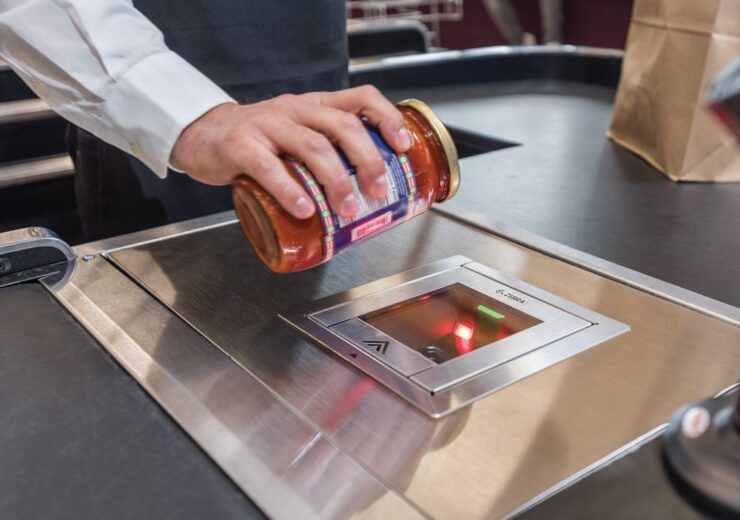
Blog - Self-Checkout In-Counter Jar Closeup
Despite suffering from a number of drawbacks, laser scanners have long dominated the retail Point of Sale (POS) market. But with the arrival of sophisticated camera-based technology, this is changing fast. We speak to Ricardo Moreno of Zebra Technologies to learn more.
Modern retail would be impossible without scanners. Already representing a global market worth $2.5bn – with ‘Grand Research Store’ predicting it’ll reach $2.8bn by 2029 – they’re indispensable right across the sector. That’s apparent enough for shoppers queuing to buy their groceries, but also for customers wanting to scan their loyalty cards. The same is true behind the scenes too, where they’re indispensable for organising stock and pricing goods.
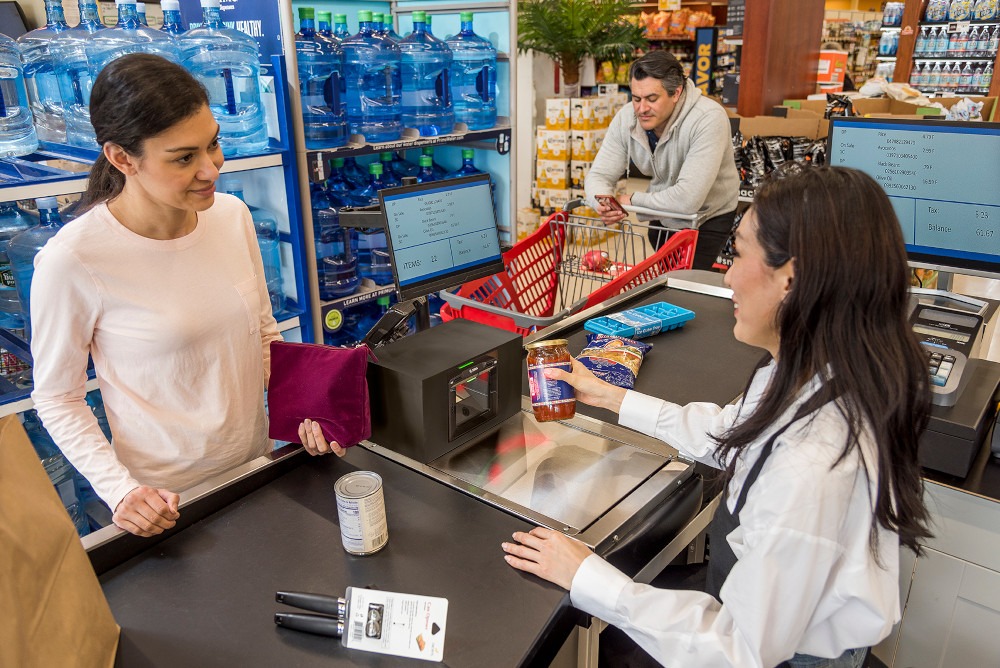
Despite their pervasiveness, however, traditional barcode scanners suffer from a range of drawbacks. That’s most evident from a technical perspective, but these machines can also be frustratingly insecure, even as their inefficiencies waste the time of both customers and staff. It goes without saying, of course, that these failings can equally have an impact on a retailer’s bottom line.
Fortunately, however, a new generation of barcode scanners are rapidly appearing on the market, which promise to overcome many of these hurdles. Leveraging powerful camera-based technology, they make the scanning process much faster and safer. Together with their robust manufacture, these devices are equally bolstering retail’s fight for sustainability – as one Illinois company is proving.
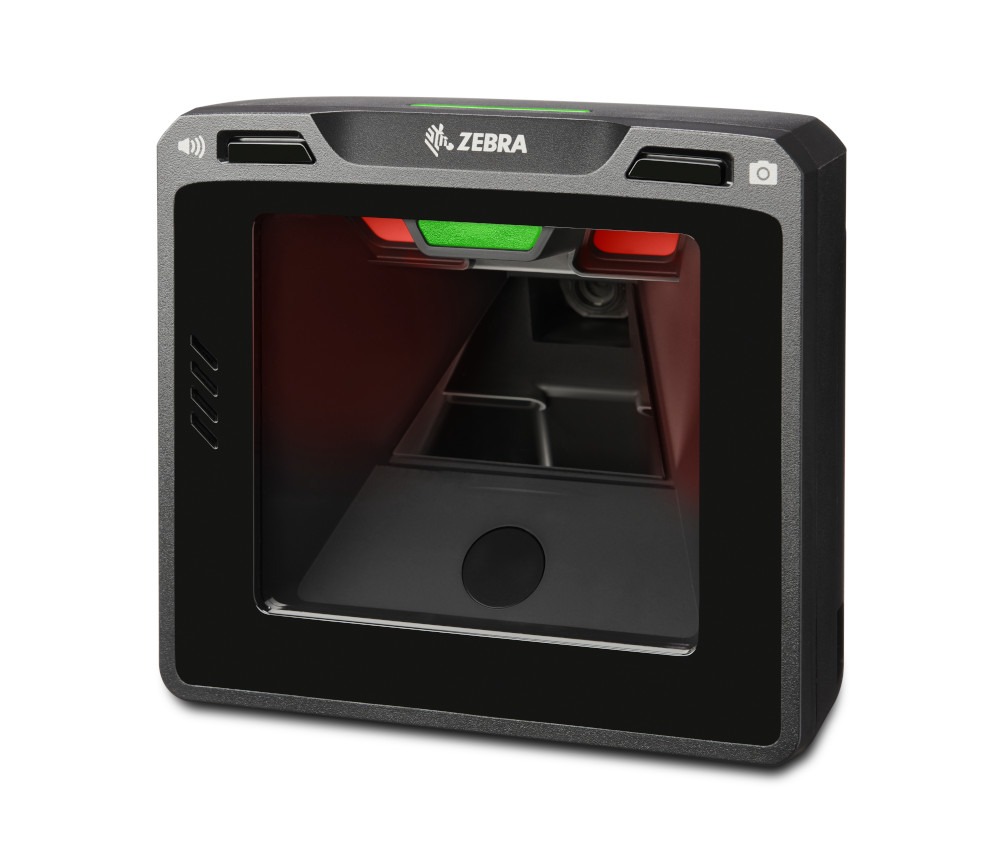 Laser bottlenecks
Laser bottlenecks
For decades, retail scanners have been dominated by lasers. Ideal for scanning so-called linear barcodes, these are the rows of black bars surely familiar to shoppers everywhere.
Yet as barcode technology has advanced – and UK shoppers took an estimated 488 million trips to the supermarket in the four weeks to Christmas 2023 alone – legacy POS scanners have struggled to keep up. That’s true in several areas. Unable to scan QR codes, let alone the digital barcodes increasingly found on smartphones, Ricardo Moreno says that older machines can cause “bottlenecks” across a retailer’s operations, particularly as objects need to be placed right in front of scanners to register.
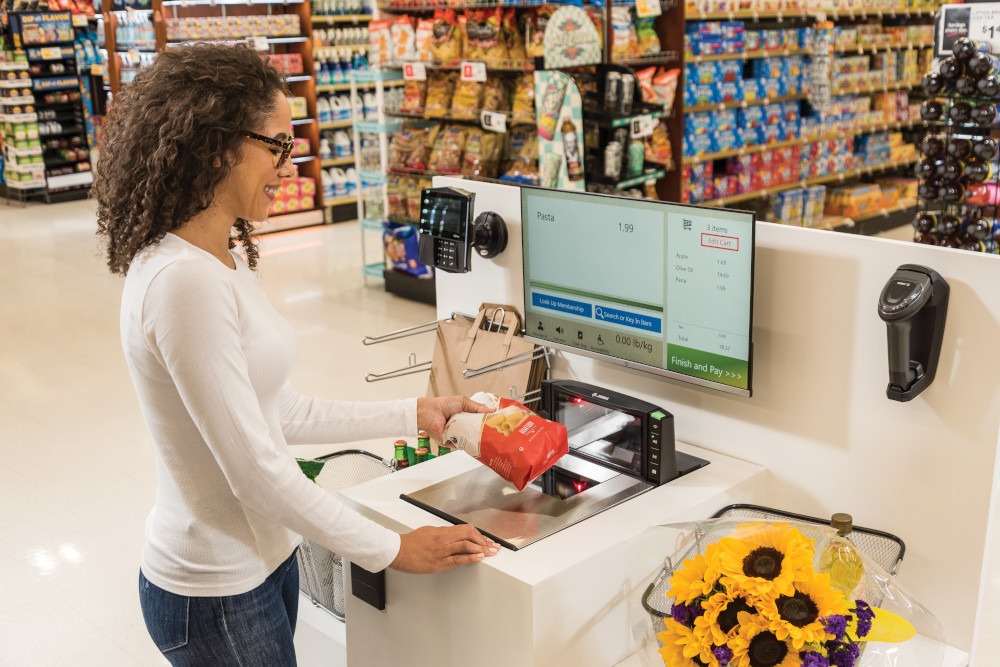
As the EMEA regional product manager at Zebra Technologies, Moreno is well placed to explore these issues. After all, his employer has been developing retail scanners since the 1980s, with Moreno noting that Zebra partners closely with sector leaders to “shape the future” of these crucial machines.
That’s just as well. Quite apart from their theoretical weaknesses, laser scanners inevitably impact a store’s performance, sparking queues, delaying customers – and ultimately raising the possibility that they’ll do their shopping elsewhere. That’s especially true, Moreno notes, in some European countries, which expect consumers to weigh fruit and vegetables before taking purchases to the till. But with older scanners only able to cope with actual barcodes, this process can be cumbersome in practice.
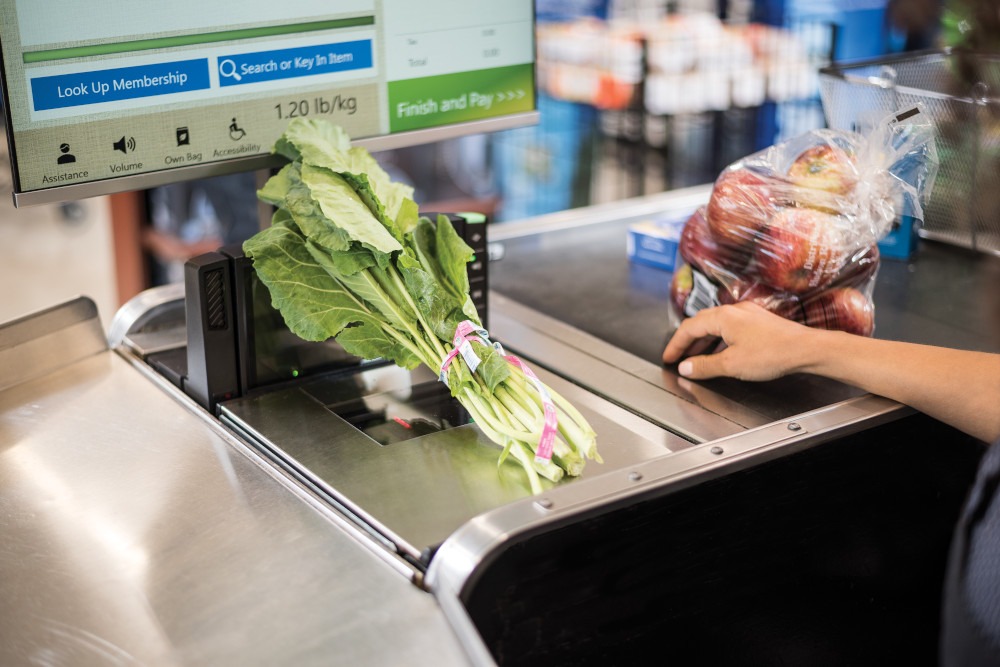
Once you factor in the difficulties laser scanners can cause further up the supply chain – notably in warehouses – and it makes sense that the National Retail Federation should find that administrative errors still cause shrinkage of almost 20% right across the sector. That’s echoed, Moreno adds, by the security risks sometimes posed by traditional scanners, as well as by the green implications of machines that need regular maintenance.
Major advantages
With these limitations in mind, it makes sense that Zebra has invested in a solution. Deserting laser-based POS technology, the company is instead using cameras to scan products. For Moreno, this decision is already paying off. “There are certainly advantages over laser scanners,” he says. “I believe we have improved accuracy and efficiency.”
Understand how camera lasers operate and it’s hard to disagree. Far more versatile than their laser-based forebears, they can easily spot digital watermarks and mobile barcodes, allowing users to scan loyalty cards and promotional coupons alongside regular price barcodes. Even better, this new technology can scan labels from any angle, ensuring administrative errors fall even as checkout speeds increase.
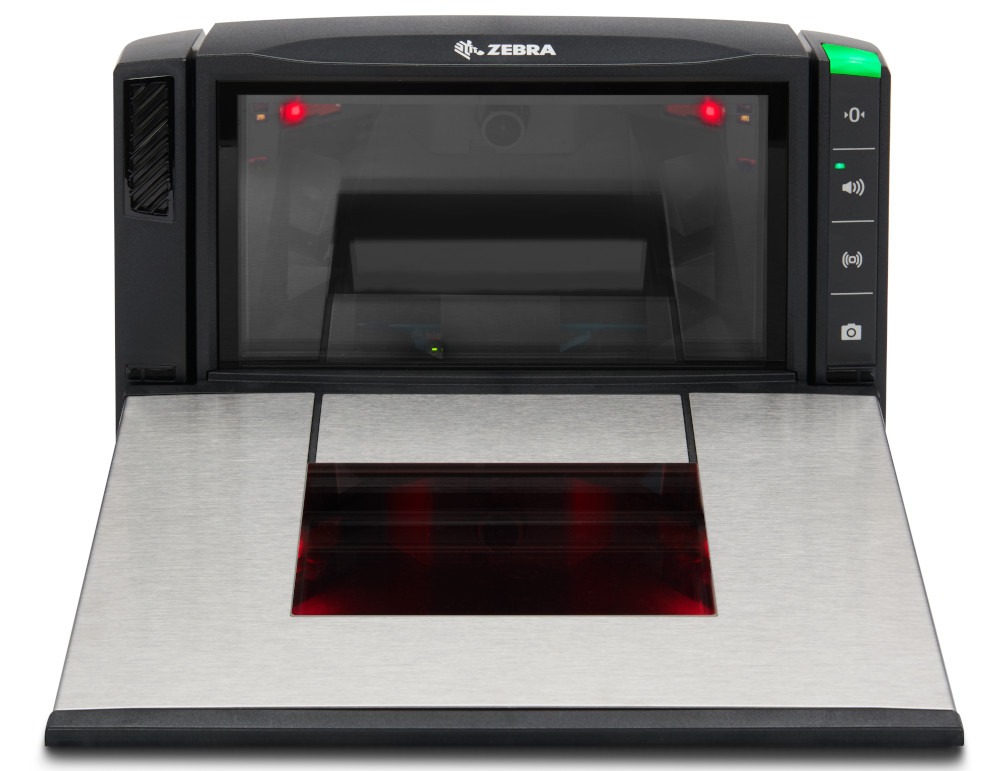
That’s especially true when retailers have a choice of Zebra scanners to suit their needs. One example, known as the SP72, comes in vertical or horizontal models, is ideal for smaller operations, like pharmacies or corner shops, where space is tighter. Though it offers similar features in practice, the so-called MP72 dovetails vertical and horizontal plane functionality in a single package, with Moreno explaining that it’s perfect for “high volume” supermarket checkouts.
This user-centric ethos is clear elsewhere too. To give one example, the MP72 comes with an optional scale, making it perfect for weighing fresh produce.
And if cameras are one pillar of the Zebra offering, Moreno and his colleagues are equally integrating technology right across their POS machines. Probably the most striking case study here involves an option called product vision.
To explain how this system works, Moreno offers the hypothetical example of an apple. As many shoppers will doubtless have experienced, traditional checkouts normally expect users to manually scroll through lists of products on a screen, before clicking on the right picture – ultimately wasting valuable time and making the retail experience more stressful.
But by leveraging powerful artificial intelligence (AI) algorithms, which can teach a scanner what an apple looks like, Zebra’s POS solutions do this work automatically. “Rather than the customer having to go to a screen and click from a database of products,” Moreno emphasises, “produce vision will identify the product.” Just as importantly, he continues, this kind of machine learning technology builds off experience, meaning a device’s capabilities will sharpen over time – especially when improvements occur both at the store level and across a centralised ERP.
This technical power extends to security, with both the SP72 and the MP72 enjoying electronic article surveillance. Using magnetic technology, this allows them to seamlessly scan high-value items, handily cutting shrinkage. With the Guardian reporting that shoplifting in the UK recently reached its highest level in two decades, that’s undoubtedly good news.
Sustainable development
Beyond everyday issues like efficiency and theft, Moreno and his colleagues are also concerned with the environmental impact of their machines. Of course, that’s important in principle for the sake of the planet. But with a recent report by ‘Nielsen IQ’ finding that 55% of UK consumers make sustainable choices whenever possible, there’s clearly a business case for going green too.
Fortunately, both the SP72 and its larger cousin are replete with sustainable features. That begin at the manufacturing level: made without halogens, mercury or latex, Zebra’s scanners are among the greenest on the market.
The need to replace devices is kept similarly low. Designed to withstand harsh customer environments – the MP72 Series is built with less than half the interconnects of other multiplane scanners – targeted failures hover at around 0.5%. Naturally, this robustness also helps cut initial investment costs.
Together with generous repair and servicing packages – lasting up to five years – and it’s no wonder Moreno is so excited about the future of Zebra’s POS offerings. “We always strive to make sure that our solutions go above and beyond what the competition is offering,” he says, adding that from 5G to edge computing, his employer’s R&D team works tirelessly to bolster customer returns. Considering everything Zebra Technologies has achieved already, there’s little reason to doubt him.
“To find out more about Zebra scanners please click on this link to download the white paper”


